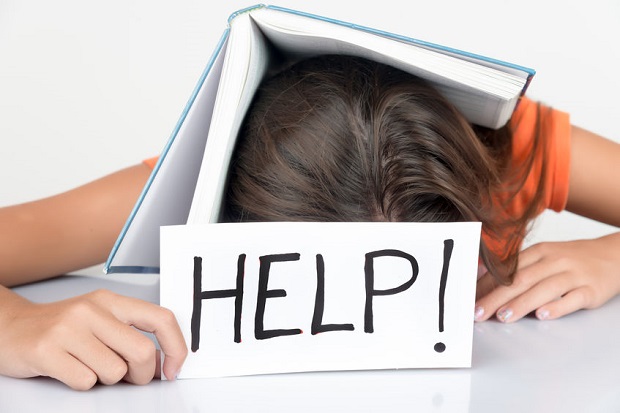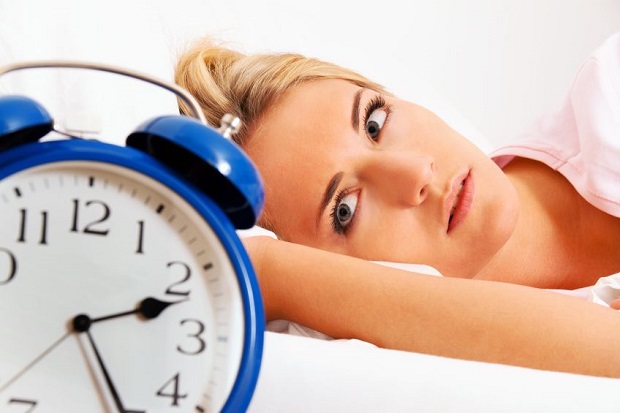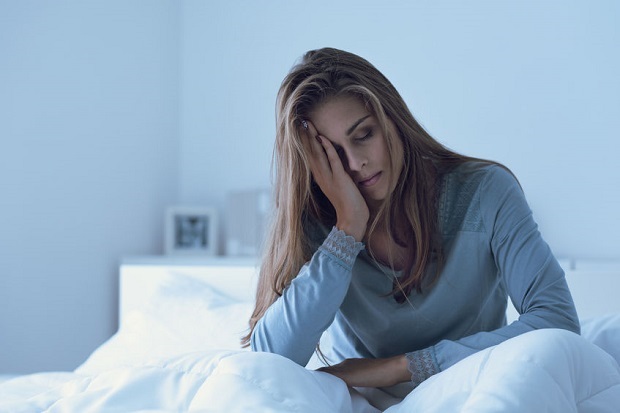What Is Insomnia?
The American Academy of Sleep Medicine characterizes insomnia by the following:
- Having difficulty falling asleep
- Having difficulty maintaining sleep/waking up frequently throughout the night
- Waking too early/unable to go back to sleep
- Overall sleep is poor quality and nonrestorative
Insomnia is the most common sleep disorder. [1]
Dig Deeper
- How Much Sleep Does an Adult Require?
- When Insomnia Is a Problem
- Severity Criteria Classification of Insomnia
- What Is the Main Cause of Insomnia?
- What Are the Health Effects of Insomnia?
- Who Is Most at Risk for Not Getting Enough Sleep?
- How Can I Stop My Insomnia?
- References
How Much Sleep Does an Adult Require?

The Sleep Research Society and The American Academy of Sleep Medicine jointly recommend that adults eighteen and older require at least seven hours of sleep per night regularly to promote optimal health. If you are not getting that much sleep, although you have had ample time to sleep, you may be suffering from insomnia. [2]
When Insomnia Is a Problem

The American Psychiatric Association defines insomnia as a sleep disorder when an individual has sleep difficulties at least three times per week for three consecutive months causing significant problems or distress at work, school, or other critical areas of an individual’s daily functioning. [3]
Severity Criteria Classification of Insomnia

Mild Insomnia: Insomnia is mild when nightly complaints of insufficient sleep do not impair social or occupational functioning. It is often associated with daytime fatigue and tiredness, feelings of restlessness, mild anxiety, and irritability. [4]
Moderate Insomnia: Insomnia is moderate when nightly complaints of insufficient sleep result in mild or moderate impairment of social or occupational functioning. It is associated with daytime fatigue, tiredness, and feelings of restlessness, anxiety, and irritability. [5]
Severe Insomnia: Insomnia is severe when nightly complaints of insufficient sleep impair social or occupational functioning. It is associated with daytime fatigue, tiredness, and feelings of restlessness, anxiety, and irritability. [6]
What Is the Main Cause of Insomnia?

There are many common causes of insomnia, with many people experiencing more than one. Poor sleeping habits, daily routines not conducive to sleep, stress, and an irregular sleep schedule can cause insomnia. Medication side effects, mental disorders, physical pain and illness, and neurological disorders can also bring it on. [7]
What Are the Health Effects of Insomnia?

The daytime sleepiness caused by lack of sleep can cause impaired performance, resulting in increased errors and a greater risk of accidents.
Not getting enough sleep regularly is also associated with many adverse health effects, including depression, weight gain, obesity, impaired immune function, increased pain, hypertension, stroke, heart disease, and an increased risk of death. [8]
Who Is Most at Risk for Not Getting Enough Sleep?

Interestingly, some population groups are more susceptible to not getting enough sleep than others. These figures are from the CDC’s Behavioral Risk Factor Surveillance System, United States, 2014. [9]
Age
Middle-aged adults 45-54 received the least sleep out of all age groups. Elderly adults over sixty-five got the most sleep.
Sex
There was very little difference between men and women regarding lack of sleep.
Race/Ethnicity
Native Hawaiian/Pacific Islanders, black, and multiracial populations were more apt to sleep less than seven hours, while white and Hispanic populations received the most sleep.
How Can I Stop My Insomnia?

There are several habits that you can adopt that will help you to achieve better sleep at night.
Routines To Help You Sleep
According to the American Psychiatric Association, routines and habits are essential for good sleep. First, you should stick to a sleep schedule. This means going to bed and waking up at the same time every day, including weekends. Next, go to bed early enough to get at least seven to eight hours of sleep. Finally, you should wind down before bed by engaging in a calming activity like reading. [10]
Avoid This Before Bedtime
Give electronics a rest for at least one hour before going to bed. Several studies have revealed that using electronics, such as text messaging, can significantly impair sleep. [11]
Avoid large meals, caffeine, and alcohol in the hours before going to bed. Also, reduce your fluid intake so the urge to urinate does not wake you. [12]
Create a Sleep Conducive Environment
You must create a sleeping environment that will help to promote sleep. This includes purchasing a quality mattress and pillow that you find comfortable. Your sleep room should be quiet, dark, and cool. [13]
Exercise Goes a Long Way Toward a Good Night’s Sleep
According to The Sleep Foundation, exercise during the day helps you sleep at night. Several surveys conducted by the foundation revealed that respondents who exercised three or more times per week enjoyed longer and better-quality sleep than those who exercised less than once. [14]
There is a caveat, though. Some studies have suggested that you not engage in vigorous exercise an hour or so before bed as it increases your adrenaline levels, body temperature, and heart rate, which can cause sleep disturbances. [15]
Long Term Insomnia Treatments
Cognitive Behavioral Therapy is the most effective long-term treatment for chronic insomnia. This therapy will help address the underlying thoughts and behaviors causing sleep disturbances. [16]
References
- [1] American Academy of Sleep Medicine – “Insomnia.”
- [2] [8] Watson NF, Badr MS, Belenky G, et al. Recommended amount of sleep for a healthy adult: a joint consensus statement of the American Academy of Sleep Medicine and Sleep Research Society. Sleep. 2015;38(6):843–844
- [3] [13] American Psychiatric Association – “What Are Sleep Disorders?”
- [4] [5] [6] The American Academy of Sleep Medicine – “The International Classification of Sleep Disorders, Revised – Diagnostic and Coding Manual.“
- [7] Sleep Foundation – “What Causes Insomnia?”
- [9] CDC – Behavioral Risk Factor Surveillance System, United States, 2014 – “Short Sleep Duration Among US Adults.”
- [10] American Psychiatric Association – “What Are Sleep Disorders?”
- [11] Khan, M.N., Nock, R. & Gooneratne, N.S. Mobile Devices and Insomnia: Understanding Risks and Benefits. Curr Sleep Medicine Rep 1, 226–231 (2015). https://doi.org/10.1007/s40675-015-0027-7
- [12] [16] American Academy of Sleep Medicine – “Healthy Sleep Habits.”
- [14] [15] The Sleep Foundation – “Exercise and Sleep.”
DISCLAIMER: THIS WEBSITE DOES NOT PROVIDE MEDICAL ADVICE
The information, including but not limited to text, graphics, images, and other material on this website, is for informational purposes only. No material on this site is intended to be a substitute for professional medical advice, diagnosis, or treatment. Always seek the advice of your physician or other qualified healthcare providers with any questions you may have regarding a medical condition or treatment before undertaking a new healthcare regimen, and never disregard professional medical advice or delay in seeking it because of something you have read on this or any other website.
Related Products
Sound Oasis Deluxe Bluetooth Sleep Tinnitus Sound Machine, World’s Best White Noise Machine for Better Sleep, Tinnitus Management, Clock Radio 288 Sounds
Mayo Clinic Guide to Better Sleep: Find relief from insomnia, sleep apnea and other sleep disorders


